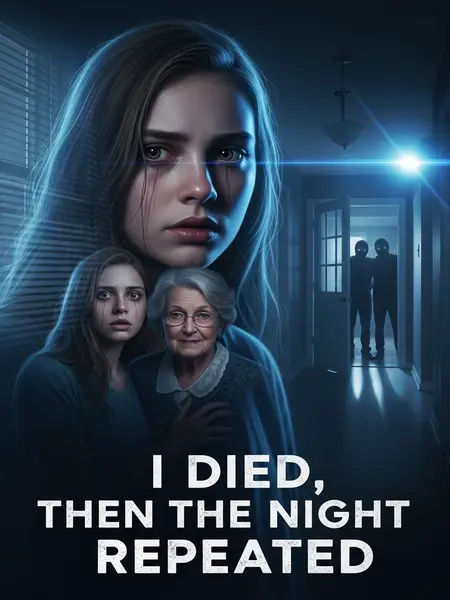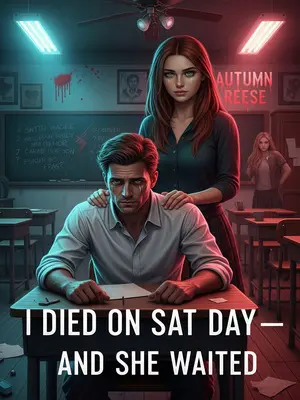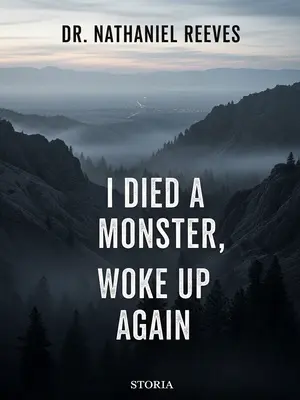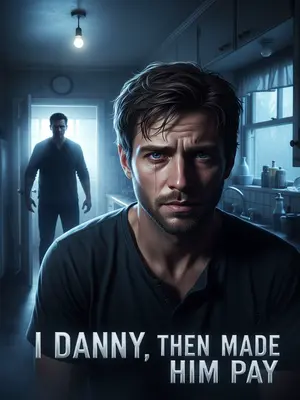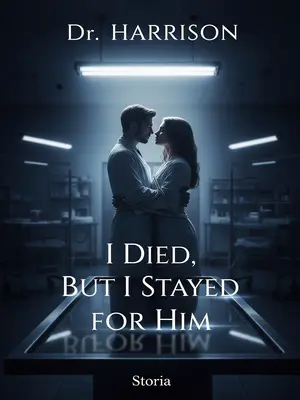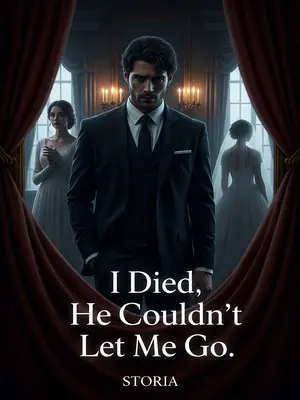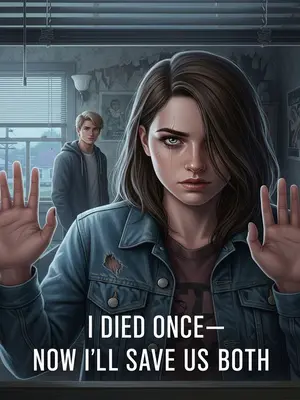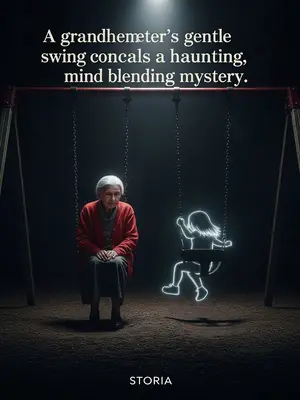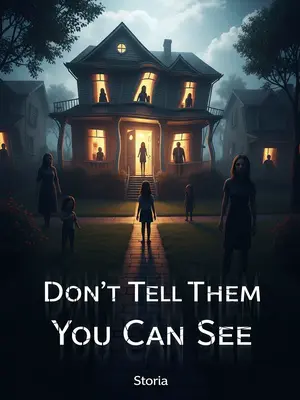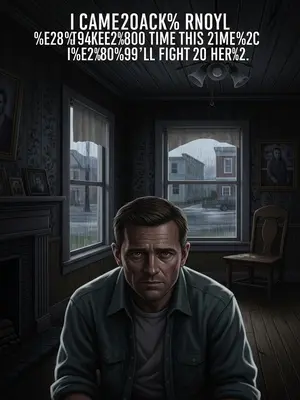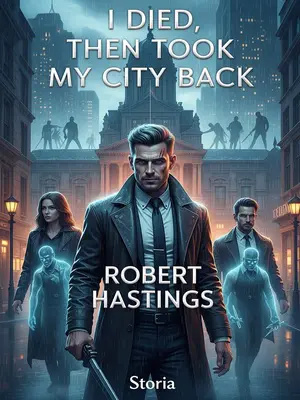Chapter 1: The Night That Ruined Everything
The night before the SATs, I was attacked.
For a split second, all I could register was the sound of my own breathing, sharp and fast, the faint scent of rain drifting in through a cracked window. My chest tightened, and the world seemed to pause—then the memory slammed into me, raw and undeniable.
That sentence sounds almost too stark, too abrupt—like something from an episode of Dateline or Law & Order, not real life. But that’s how it happened. One minute I was stressing about test scores and if my pencils were sharp enough, and the next, everything I knew was torn apart. It still doesn’t feel real. I wish it wasn’t.
Two men broke into our house and attacked me, right in front of my grandma. I can still feel the rough grip, the panic, the shock. Then, as I watched, they strangled her to death. My mind froze—my whole world shattered in that instant.
I barely survived. Once a star student bound for Yale or MIT—dreams so bright they hurt to remember—I could barely move, couldn’t even use the bathroom by myself. Everything changed in a heartbeat. Yale or MIT... those names echoed in my head, but now they felt like someone else's future.
But then I got a second chance.
Or so I thought.
I woke up at the exact moment when the killers knocked on our door. My heart nearly stopped. The sound rang in my ears, cold and sharp, pulling me out of the nightmare and straight into reality.
My life was destroyed the night before the SATs. It was June 6th, 10 p.m.—I remember it clear as day. Thunder crashed so loud it rattled the windows, and the rain pounded the roof. The power had gone out, leaving the house in total darkness. I remember gripping the edge of the table, every muscle tense. The air felt charged, like something terrible was about to happen.
The air felt thick, heavy with humidity and static. Lightning flickered at the windows, turning the living room furniture into hulking shadows. The scent of wet earth drifted in through the cracked window—Grandma always insisted on a little fresh air, even during a storm. The old clock on the wall ticked away, slow and heavy, each second stretching longer than the last.
Suddenly, someone knocked at the door.
Everything stopped.
"Open up, we're here to check the wiring."
A voice—raspy, impatient—cut through the darkness.
The voice was raspy, like he was trying to sound friendly, but couldn't quite pull it off. There was something off about it, something that made my stomach twist.
It was the kind of voice you might hear in a nightmare—half-friendly, half-threatening, the sort that makes your skin crawl even if you can’t say why. Every hair on my arms stood up. My breath caught in my throat. Was this really happening?
I was shaking with fear. My hands trembled, and my knees felt weak. The killers had arrived.
Before the power went out, Grandma was in the kitchen, prepping breakfast for the next day. She insisted on baking a batch of cinnamon rolls—a good-luck tradition for big days.
It was a little thing, but the kitchen smelled like cinnamon and brown sugar, wrapping the house in a blanket of sweetness that made everything feel okay. That smell always meant hope—first days of school, big tests. I breathed it in, thinking for a second that maybe nothing bad could happen on a night like this.
"Ellie, double-check your test admission ticket, your pencils, your erasers," she kept reminding me, hovering nearby. She told me not to stress, but she must've checked my backpack a hundred times that night. I almost rolled my eyes, but now I’d give anything to hear her say it again.
She even made me lay out my clothes for the morning—"You want to look sharp when you walk in there, honey," she’d say, her voice gentle but relentless. It was the kind of tone that could drive you crazy when you're seventeen and think you've got it all figured out. But now, looking back, I’d give anything for one more round of her fussing. I wish I’d known what was coming.
What I used to call nagging became something I’d never get back.
I hugged her tight, burying my face in her shoulder. My throat tightened, and tears threatened to spill over, burning hot behind my eyes.
Her sweater was soft, smelling faintly of laundry soap and cinnamon. I breathed her in, clinging to that warmth, wishing I could hold on forever. For a second, the world felt safe.
Grandma froze, confused, and gently stroked my hair. "What's wrong, sweetheart? You nervous? Don't put so much pressure on yourself. No matter what school you get into, I'll always be proud of you."
Her voice was rock solid, the kind that made everything seem possible. I could hear the storm raging outside, but with her arms around me, it was just distant thunder. I wish I’d told her everything right then—how scared I was, how much I loved her.
Ten years paralyzed, and I still ask myself—why did I open that door?
Some regrets just don't fade, no matter how many years go by. They settle in your bones and stay there, heavy as stone.
Through the peephole, I saw two men in uniforms, drenched from head to toe. But the moment the door opened, a huge hand clamped down on me. My blood ran cold.
The uniforms looked official—blue shirts, name tags, rain jackets. But the way their eyes darted around gave me the creeps. Something about them was just... wrong. I hesitated for a split second. That second was all it took.
"Grandma—"
My mouth went dry. My voice barely came out, thick with dread.
Before I could scream, they slammed me against the wall. My head was spinning, everything went fuzzy. I tried to fight back, but his grip was unbreakable.
Hearing the noise, Grandma grabbed a kitchen knife and staggered forward, ready to fight them off. She was in her slippers, her hair wild, hands shaking but eyes blazing. That image—her, standing there, brandishing a kitchen knife—would haunt me forever. Even now, I see it when I close my eyes.
But she never stood a chance. He kicked her hard, sending her sprawling.
The sound of her hitting the linoleum echoed in my ears. A sharp crack. My heart lurched. I reached out, desperate, but the man's grip only tightened, pinning me in place. Panic and guilt crashed over me.
I learned later that the two men were death-row inmates, set for execution. They'd killed a cop and broken out of prison. The burly one with the scarred face was called Big Hank, the skinny one was Ray Marsh.
Their names were everywhere in the news—"Big Hank" and "Ray Marsh," the guys who turned our street into a nightmare. I remember seeing their mugshots on TV years later, and feeling that same cold fear all over again.
Both of them were stone-cold killers—dangerous, violent, and desperate.
Big Hank dragged me into the bedroom without hesitation. My vision went black for a second, then snapped back to pain, fear, and Grandma’s voice screaming for mercy.
The world came back in shards—pain, fear, the sound of Grandma begging. My body felt like it was on fire. I tried to scream, but all that came out was a broken gasp. I was drowning.
They tied my grandma up on the floor and forced her to watch as they brutalized me. Every moment burned into my memory—her sobs, my screams, the terror that never let up.
Grandma sobbed until her voice was hoarse, crawling on the ground and pounding the floor in despair. "Please! Take all our money, all of it! If you have to hurt someone, hurt me, just spare my granddaughter!" Her voice cracked, desperate and raw. I could hear her love and her fear in every word.
The torture lasted four hours, until they got hungry and told Grandma to cook noodles. I remember thinking, even then, how surreal it was—after everything, they wanted a meal. My stomach twisted with horror and disbelief.
It’s strange, the things you remember. The way the kitchen light flickered as they barked orders. Grandma’s hands shaking as she boiled water, the rain pounding the roof, drowning out my own cries. The world felt unreal.
"Oh, the SATs are tomorrow, huh? If you keep us happy, maybe we'll let your granddaughter live. What do you think about that, huh?" One of them sneered, his voice sharp and taunting.
Their laughter was hollow, cruel. It echoed in the kitchen, bouncing off the tiles. Grandma held onto any hope, no matter how small, desperate for a scrap of mercy.
Grandma believed them. After they were full and picking their teeth with toothpicks, wiping their greasy hands on her dish towels, they strangled her to death right in front of me.
Her face turned purple, her hands flailing helplessly, desperately reaching for me. I’ll never forget the look in her eyes—the panic, the pleading.
I screamed and struggled, the cloth in my mouth loosening. I lunged like an animal and bit the fat one's arm. He howled in pain, grabbed a knife, and slashed at me. Blood spilled, hot and fast.
The pain was blinding, but I barely noticed. All I could see was Grandma’s face, her eyes wide, pleading, begging me to hold on. To live.
Big Hank used to be a butcher—he knew exactly where to strike at the joints. The way he moved was cold and practiced.
I remember the cold, methodical way he moved—like he was cutting meat, not hurting a person. It was just routine for him. That memory still makes me sick.
It was my homeroom teacher who found me. She noticed I hadn't shown up for the exam and rushed to my house. She probably saved my life.
By then, I had passed out in a pool of blood, every joint and bone shattered, limp as a rag doll. They rushed me to the ER.
The EMTs said it was a miracle I was even alive. I remember the cold metal of the stretcher, the blur of hospital lights overhead, voices shouting, sirens wailing. My world narrowed to pain and confusion.
They thought I wouldn't survive the surgery. The doctors spoke in low, serious voices. I caught fragments: "critical," "trauma," "unlikely to recover." My chest tightened with fear.
Doctors spoke in hushed voices outside my room. "What a shame. She was a sure bet for Yale or MIT—always top three on practice exams. Her counselor said those schools had already reached out. Such a bright future, wasted..." Their words stung, like I was already gone, just a ghost haunting the hospital halls.
But I survived, at the cost of lifelong disability. The words echoed in my head, over and over. Survived—but at what cost?
Every day was a new kind of pain. Physical therapy, endless medications, the stares of strangers. Every step, every task was a mountain. I hated it. The world felt too small, and I was trapped inside it.
I lost my family, my future, my dignity.
The world shrank to the size of my hospital bed. Friends drifted away, teachers stopped visiting. Even the nurses sometimes forgot I was there, blending into the background like I didn’t exist.
Barely clinging to life, I lost my shot at all of it. The future I’d worked so hard for was gone.
The acceptance letters that once felt like golden tickets now meant nothing. They gathered dust in a drawer, unopened, a reminder of everything I’d lost.
Not long after the exam, my homeroom teacher brought classmates to visit me. I forced a smile as I looked at their bright, youthful faces, until the most popular girl in class pinched her nose, wrinkling it in disgust.
"Do you guys smell that? Why does Ellie Harper's room stink?" Her words rang out, loud and clear, cutting right through the awkward silence. My cheeks burned. I wanted to disappear.
Her voice was loud, cutting through the awkward silence. I could feel every eye in the room flick to me, then away again. No one knew what to say. The smell of urine hit me—sharp, humiliating. The nurse hadn’t changed me in time.
The humiliation was a living thing, crawling up my throat. I wanted to disappear, to melt into the sheets and never come back. I squeezed my eyes shut, wishing I could vanish.
In that moment, I wanted to die from the shame and humiliation. As soon as my classmates left, I heard them chatting in relief outside.
"Hey, where are we going to have fun later? Let's hit that karaoke place in Midtown—the one with all the K-pop songs!"
"Ugh, coming to the hospital is so unlucky. I need to buy some sage to burn and shake off the bad vibes." Their voices faded, but the sting lingered. (Burning sage—maybe they’d seen it on TV. Either way, I was the bad luck they wanted to shake off.)
Their laughter echoed down the hallway. I listened until I couldn’t anymore, staring at the ceiling, wishing I could erase myself. Silence pressed in, heavy and cold.
Ten years paralyzed was enough to kill the old Ellie Harper—proud, ambitious, always striving to be the best. That version of me was gone.
The girl who once believed she could do anything was gone, buried under years of pain and regret. All that was left was someone I barely recognized—a shadow, haunted by what might have been.
